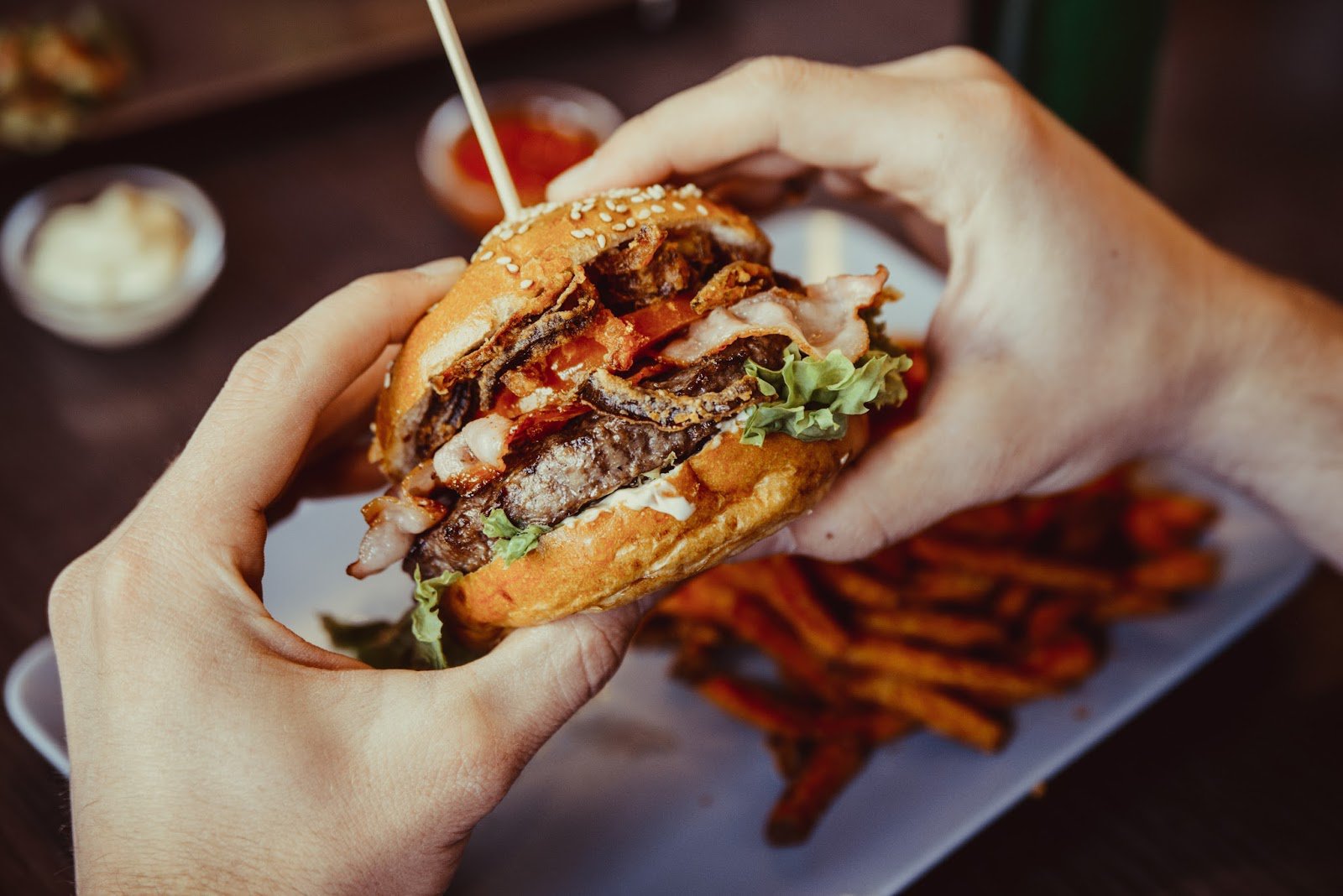
Patients commonly associate the consumption of fatty meals with the onset of IBS symptoms, but are these effects real and is fat restriction necessary to manage IBS symptoms?
Associations between fatty meal consumption and symptom induction have been identified in a number of studies. For instance, a survey of 300 patients with IBS revealed that 44% attributed the consumption of fatty foods (deep-fried goods, pizza and cream) with the induction of symptoms (Simren, 2001). Another survey found that just over half of participants with IBS perceived that symptoms were triggered by the consumption of fatty or fried foods (Bohn, 2013). Symptoms associated with fatty meal consumption include abdominal pain (Simren, 2007), abdominal distension and bloating (Passos, 2005), increased gas and loose stools (Simren, 2001).
A number of mechanisms have been proposed to explain the possible adverse effects of fatty food ingestion on IBS symptoms. For instance, it has been suggested that fat ingestion may slow intestinal gas transport, and do so to a greater extent in people with IBS than healthy controls (Serra, 2002; Simren, 2007). One study examined these effects by infusing fat into participants’ small intestines and found this increased pain and discomfort in people with IBS more so than in healthy controls (Simren, 2007). Other explanations for possible adverse effects of fat ingestion in people with IBS include an exaggerated gastrocolonic response (Rogers, 1989; Narducci, 1986) and the presence of visceral hypersensitivity.
Despite the associations between fat intake and IBS symptoms, and a few plausible explanations, no high quality, randomized controlled trials have measured the effect of a fat-restricted diet in the management of IBS. Therefore, we don’t yet know if cause and effect relationships exist between fat consumption and IBS symptoms, nor whether fat restriction improves IBS symptom control.
So where does fat fit into the dietary management of IBS? Clinical guidelines that make recommendations about the dietary management of IBS either make no mention of fat intake in IBS (Ford, 2014; Hookway, 2015), or suggest that fat intake be modified if it suspected to trigger symptoms (McKenzie, 2016; Jones, 2000; Spiller, 2007; Drossman, 2016).
Our recommendation is that you work with your dietitian to firstly establish whether a low FODMAP diet is sufficient to improve your IBS symptom control. We recommend a low FODMAP diet as the first line dietary treatment as this is the best evidenced approach. If you do not achieve adequate relief on a low FODMAP diet, consider other dietary triggers, including fat. If fat is suspected to trigger your IBS symptoms, your dietitian will help you to identify sources of fat in your diet and help you to reduce or modify your intake. As always, we recommend trying one dietary strategy at a time to obtain a clearer picture of which changes are having an effect on your IBS symptoms and which are not.